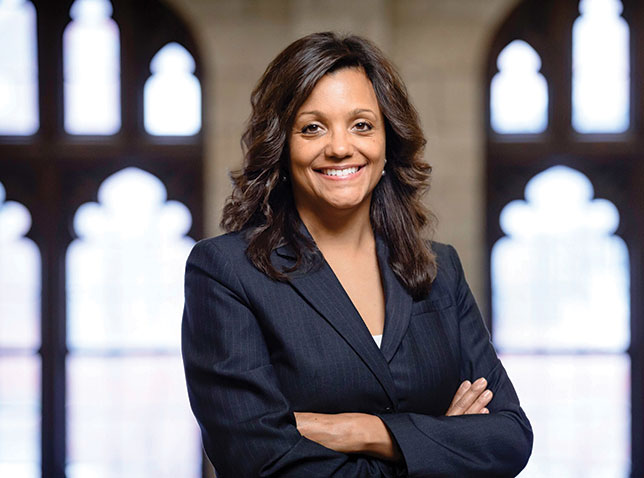Safia Thompson knew she had chosen the right law school when she received an email from the dean this past June. The message from Donna Young, dean of Ryerson University’s brand new faculty of law, to the program’s first cohort addressed the killing of George Floyd, the role of the law and the COVID-19 pandemic.
“You and I, our faculty, and staff are part of Ryerson Law’s inaugural community and the newest members of the legal academy in Canada,” Ms. Young wrote. “Let us begin our time together by vowing to support each other while we do the hard work of challenging the status quo, defending human rights and democratic principles, and ensuring a transformative, fair, and equitable justice system.”

Ms. Thompson, who is Black and a first-generation, mature student, was moved. For her, the email was a sign of how Ryerson law “wanted to do things differently” by tackling what she defines as “uncomfortable topics”: race, gender, class. Ms. Young, who lived in the U.S. for 26 years before moving back to Toronto to assume the deanship at Ryerson, said she was compelled to send the message because she wanted those “who decided to choose this life in law … in this weird new distant world” to know they were working with someone “who had spent her life trying to understand how the law interacts with destruction and racism.”
Ryerson’s new legal program strives to be different from its traditional counterparts. It’s designed to train lawyers for the complexity of the 21st-century legal landscape. It focuses on equitable access to the justice system and aims to recruit students from underserved populations. “Law plays a big part in our civic imagination because we’re picking the students who will eventually serve our societies,” said Sari Graben, a professor of Aboriginal and Indigenous law and associate dean, academic, research and graduate studies. “It’s a big goal to try and bite off.”
Already, the program’s administration is highly diverse, as are its students. Around 50 percent of the program’s 170 students are racialized; 55 percent are female and 75 percent are first-generation law students.
It also focuses on technology and prepares students for how digitization is impacting the profession and how digital technologies? can be regulated. The program includes, for example, a week-long course that asks students to solve a legal problem through creative digital solutions. “One of the biggest disappointments I have is not being able to meet my students and have these conversations with them,” Ms. Young said.
The program has a co-teaching model, with each course led by a professor and a practitioner, and follows an integrated practice curriculum approved by the Law Society of Ontario, which includes lectures, intensive practical courses and a semester-long work placement. By integrating legal theory with practical skills, students can get a job in the field right away without needing to complete a year of articling. (Lakehead University offers a similar structure.) Because of the pandemic, however, faculty have tried to create smaller groups, keeping tutorials at 10 students when possible, while making themselves widely available through office hours. The faculty “is teaching, planning for the future and building supports at the same time,” Ms. Young said. “It’s harder to do when you’re remote.”
The co-teaching structure is “definitely demanding,” Ms. Thompson said, but added that it helps her feel more prepared. Students learn everything from how to write a contract or a non-disclosure agreement, how to interview a client, take notes during a meeting, or do a multi-case analysis. Dr. Graben calls these sessions “a simulated placement in a corporate setting” that will help students overcome the large learning curve of an early-career legal job.
Despite efforts to make the program widely accessible, some students still face barriers. Although Ryerson is the cheapest of the three law schools in Toronto, Ish Aderonmu has found its annual tuition of about $22,000 restrictive. The first-year law student said he is struggling to stay afloat financially, has been unable to procure a line of credit and looked to crowdfunding for help. “I’m someone who embodies all these barriers we speak of: I’m Black, formerly incarcerated, mature and broke,” he said. “I like what I’m learning, but the school needs to have a greater understanding of precarity.”
Ms. Young said she is “keenly aware” that students are facing tough circumstances and recognizes that the price of the education is still too high. She has been fundraising and speaking to law firms to get money for greater financial support. “We don’t have alumni so we don’t have a network [of potential donors],” she said. “I’m making the case that we’re doing something different and they should back us.”
For the most part, faculty members and students like Ms. Thompson recognize that they are building the program together. “Ryerson is creating a different kind of lawyer. One that is not afraid to fail, is relentless, and doing this for a genuine reason,” Ms. Thompson said. “The same access that’s given to us here is the access we’ll give when we’re lawyers. The world isn’t ready.”